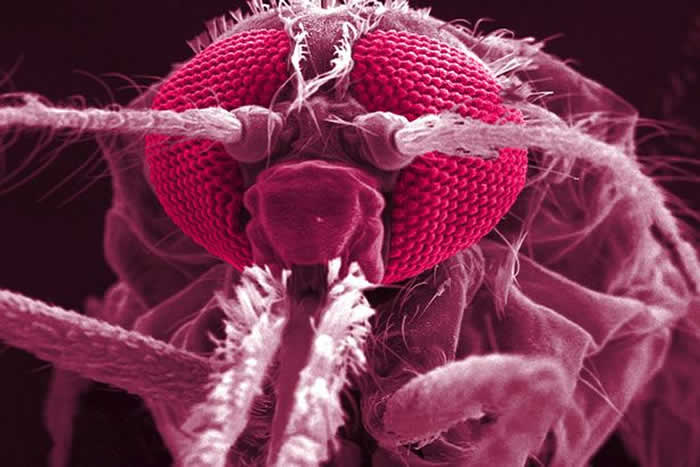Scientists have discovered potential cure for nine out of 10 types of cancer, using protein created from malaria parasite.
[contentblock id=1 img=adsense.png]
A team of Danish and Canadian scientists stumbled across the breakthrough while hunting for a weapon to fight malaria in pregnant women. Essentially, their study, published in the journal Cancer Cell and reported by DailyMailUK online, revealed that armed malaria proteins could kill cancer.

Raising hopes of a genuine medical treatment for the disease, the researchers say they hope to begin human trials within the next four years. Malaria expert, Prof. Ali Salanti, from the University of Copenhagen in Denmark revealed that the carbohydrate that the malaria parasite attaches itself to in the placenta of pregnant women is identical to a carbohydrate found in cancer cells. In the laboratory, his team has created a protein that the malaria parasite uses to adhere to the placenta, and they’ve added a toxin. This combination of malaria protein and toxin seeks out the cancer cells, before being absorbed by the diseased cells. The toxin is then released inside, triggering a process, which kills the cancer cells. Salanti, working in collaboration with cancer researcher, Dr. Mads Daugaard, from the University of Columbia, has observed the process in cell cultures and in mice with cancer. Professor Salanti said: “For decades, scientists have been searching for similarities between the growth of a placenta and a tumour.
[contentblock id=2 img=gcb.png]
“The placenta is an organ, which within a few months grows from only a few cells into an organ weighing approximately two pounds, and it provides the embryo with oxygen and nourishment in a relatively foreign environment. “In a manner of speaking, tumours do much the same. They grow aggressively in a relatively foreign environment.” Salanti and his team are now testing a vaccine against malaria in humans. It was in connection with the development of this new drug, that he made the discovery that the carbohydrate in the placenta was also present in cancer tumours. Upon making the discovery, Salanti immediately contacted his former student, and now cancer researcher, Daugaard, who is head of the Laboratory of Molecular Pathology at the Vancover Prostate Cancer at UBC. Working together, the two groups of scientists have generated findings, which they hope will provide the basis for a drug to fight cancer. Salanti said: “We examined the carbohydrate’s function. In the placenta, it helps ensure fast growth. Our experiments showed that it was the same in cancer tumours.
Read More: Aspirin Reverses Obesity Cancer Risk
“We combined the malaria parasite with cancer cells and the parasite reacted to the cancer cells as if they were a placenta and attached itself.” The two groups of researchers have tested thousands of samples from brain tumours to leukaemias, and a general picture has emerged. Their findings indicate that the malaria protein is able to attack more than 90 per cent of all human tumours: With non-Hodgkin’s lymphoma, the treated mice’s tumours were about a quarter the size of the tumours in a control group; with prostate cancer, the tumours disappeared in two of the six treated mice a month after receiving the first dose; and with metastatic bone cancer, five out of six of the treated mice were alive after almost eight weeks, compared to no mice in the control group. Duagaard said: “We have separated the malaria protein, which attaches itself to the carbohydrate and then added a toxin. By conducting tests on mice, we have been able to show that the combination of protein and toxin kill the cancer cells.” Dr. Thomas Mandel Clausen, a PhD student involved with the project for the last two years, added:
[contentblock id=3 img=adsense.png]
“It appears that the malaria protein attaches itself to the tumour without any significant attachment to other tissue. And the mice that were given doses of protein and toxin showed far higher survival rates than the untreated mice. We have seen that three doses can arrest growth in a tumour and even make it shrink.” Ironically, the only drawback appears to be the fact the treatment would not be available for pregnant women. Salanti said: “Expressed in popular terms, the toxin will believe that the placenta is a tumour and kill it, in exactly the same way it will believe that the tumour is a placenta.” In collaboration with the scientists behind the discovery, the University of Copenhagen has created a biotech company, VAR2pharmaceuticals to drive the clinical development forward. Salanti, Daugaard and their teams are now working towards being able to conduct tests on humans. “The earliest possible test scenario is in four years time,” Salanti revealed. He added: “The biggest questions are whether it’ll work in the human body, and if the human body can tolerate the doses needed without developing side ef












